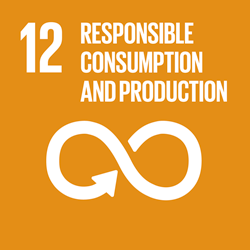Technological watch
Scientific Irrigation Scheduling for Sustainable Production in Olive Groves
The present study aimed at investigating scientific irrigation scheduling (SIS) for the sustainable production of olive groves. The SIS allows farmers to schedule water rotation in their fields to abate crop water stress and maximize yields, which could be achieved through the precise monitoring of soil moisture. For this purpose, the study used three kinds of soil moisture sensors, including tensiometer sensors, irrometer sensors, and gypsum blocks for precise measurement of the soil moisture. These soil moisture sensors were calibrated by performing experiments in the field and laboratory at Barani Agricultural Research Institute, Chakwal in 2018 and 2019. The calibration curves were obtained by performing gravimetric analysis at 0.3 and 0.6 m depths, thereby equations were developed using regression analysis. The coefficient of determination (R2) at 0.3 and 0.6 m depth for tensiometer, irrometer, and gypsum blocks was found to be equal to 0.98, 0.98; 0.75, 0.89; and 0.82, and 0.95, respectively. After that, a drip irrigation system was installed with the calibrated soil moisture sensors at 0.3 and 0.6 m depth to schedule irrigation for production of olive groves as compared to conventional farmer practice, thereby soil moisture profiles of these sensors were obtained to investigate the SIS. The results showed that the irrometer sensor performed as expected and contributed to the irrigation water savings between 17% and 25% in 2018 and 2019, respectively, by reducing the number of irrigations as compared toother soil moisture sensors and farmer practices. Additionally, olive yield efficiencies of 8% and 9%were observed by the tensiometer in 2018 and 2019, respectively. The outcome of the study suggests that an effective method in providing sustainable production of olive groves and enhancing yield efficiency.
Publication date: 15/04/2022
Author: Marjan Aziz
Reference: doi: 10.3390/agriculture12040564






